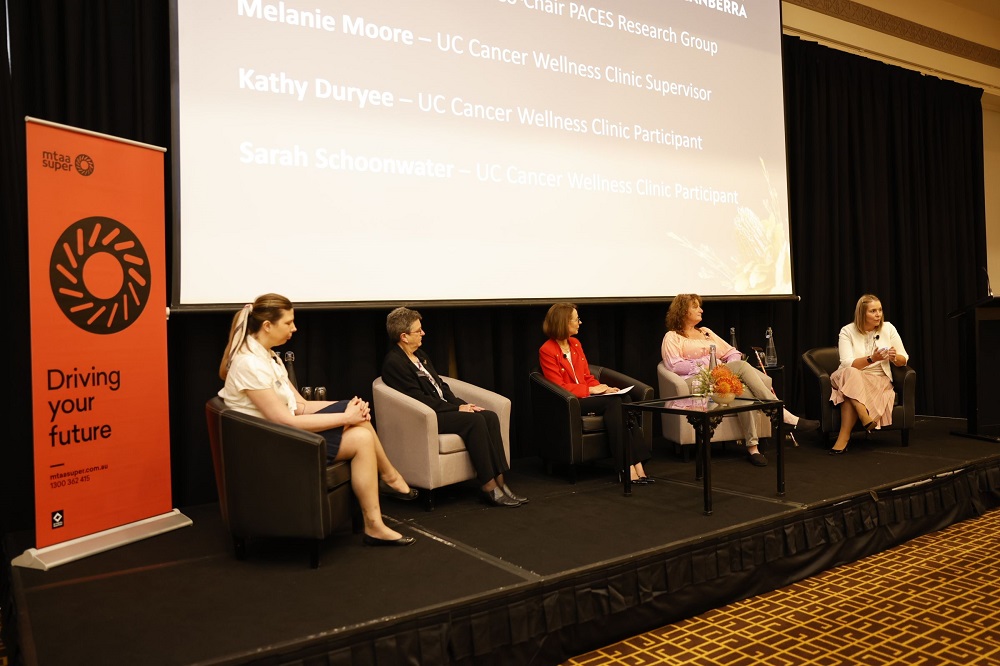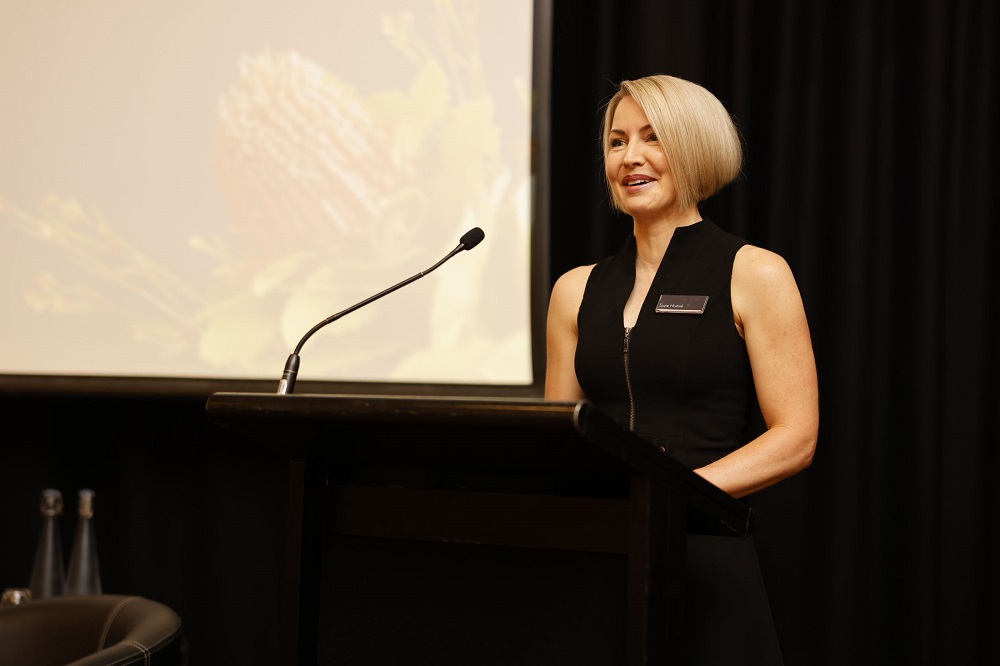Katarina Slavich
30 November 2020: University of Canberra alumni, staff and donor community gathered at the Hyatt Hotel Canberra last week to celebrate women’s leadership in health and support life-changing cancer recovery research at the fifth annual Women’s Celebration Breakfast.
The Breakfast shed light on the unseen and often overlooked issues of cancer and brought into focus the progressive rehabilitation work taking place at the University through the PACES (pre-habilitation, activity, cancer, exercise and survivorship) Research Group.
The group came together in early 2019 and partnered with Canberra Regional Cancer Hospital and ICON Cancer Centre to research cancer recovery and life after cancer for patients and their loved ones.
Dr Catherine Paterson, Co-chair of the PACES Research Group said that the group consists of UC academics and clinicians who are passionate about conducting research in cancer care recovery.
“PACES research is embedded within a multi-disciplinary healthcare professional team to improve the physical and psychological well-being – not only for the person diagnosed with cancer, but their loved ones too,” said Dr Paterson.
“PACES research is focused on three distinct areas of cancer care research: prehabilitation, physical activity and cancer thrivership across the cancer care continuum.”
One of the PACES research projects is embedded in the UC Cancer Wellness Clinic which investigates the effect of exercise among people affected by cancer during and after chemotherapy treatment. UC students undertaking courses in Allied Health are also involved in delivering individually tailored health exercise interventions.

The event has so far raised over $20,000 for PACES, chasing a $25,000 target. The funds raised will go directly to the PACES Research Group. The funds will either subsidise the cost of participants’ involvement in the program or towards engaging further researchers to support the program.
“Initially it focused on group-based exercise rehabilitation sessions provided by the UC Cancer Wellness Clinic at the ICON Cancer Centre. However, in 2020 it has evolved to include telehealth options (online sessions) and one-on-one sessions to minimise risk to participants concerned about exposure to COVID-19,” said Dr Paterson.
UC Cancer Wellness Clinic participant, Sarah Schoonwater, shared how the program has helped her recovery from breast cancer.
“I was very active before my diagnosis. I swam every morning and I was a cycling coach,” said Ms Schoonwater.
“I was told I couldn’t swim because I was too vulnerable, and I couldn’t ride my bike because if I had an accident it would impact my treatment.
“If it wasn’t bad enough that you lose what you think could be your life, everything else you enjoy starts to be taken away from you as well.”
Ms Schoonwater said having a structured training program that is specifically designed for what stage of treatment you are at was extremely beneficial.
“When I started, you could undertake the program as a group which meant you could really encourage each other,” said Ms Schoonwater.
“You don’t get a structured training program at the gym. That comradery that you don’t get elsewhere really inspires you.”
The PACES Research Program will continue to develop holistic models of person-centred support to address the unmet needs experienced by people affected by cancer in our community, and gather evidence to understand the impact that exercise can have to help:
- Improve patient prognosis
- Improve mortality rates
- Decrease recurrence
- Increase treatment success rates
The Breakfast was hosted by Virginia Haussegger AM and included a special guest address from UC health alumna Suzie Hoitink who was recently appointed as a Fellow of the Australian College of Nursing.

Donations to support vital cancer recovery research in the PACES Research Group, and the courageous UC Wellness Clinic participants are welcome and can be made online here.
Learn more about the PACES research projects here.


